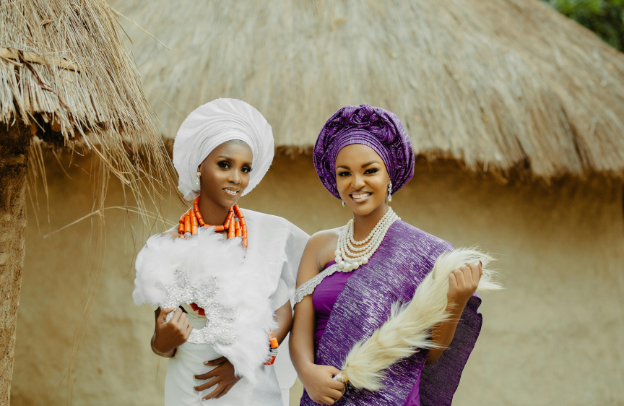From Harlem to Home: Amara’s Journey to Ghana

In a world where the color of your skin can make you a target before you speak, Amara has learned to carry her Blackness like both armor and inheritance. When yet another headline flashes across her screen—another unarmed Black man brutalized in the streets of New York—something inside her breaks open.
Learn How to Leverage Your Story through our Story To Asset Framework.
It’s not just rage. It’s longing. A yearning to go beyond protest, beyond survival, to something deeper. She doesn’t want to escape—she wants to remember. To return. Guided by her grandmother’s stories and a hunger for belonging, Amara sets out on a journey to Ghana—not just to visit, but to rediscover the parts of herself stolen by history.
What she finds there will shift everything she thought she knew about identity, ancestry, and home.
Understanding My Short Travel Stories?
My Short Travel Stories is a research initiative created by Obehi Ewanfoh, blending short video interviews and written features to spotlight the diverse journeys of travelers and travel professionals alike. Through their voices, the series explores timeless questions:
- What inspires people to travel?
- What do they experience along the way?
- And what lasting impact does travel leave behind?
The series, especially the section on African diaspora, involves a deeply personal narrative, inviting people of African descent to reconnect with their ancestral roots by experiencing the history, traditions, and communities that define the African continent.
Every story in the series is more than a trip—it’s a journey across generations, a reconnection to heritage, and a bridge spanning continents and time.
The storytelling series is part of the Diaspora Tourism Experience (DTE), a unique initiative by the AClasses Academy.
DTE offers transformative opportunities to visit historical landmarks, explore cultural heritage sites, and engage meaningfully with local African communities.
Through travel as a form of remembrance, healing, and reconnection, the project aims to restore identity and foster global kinship among people of African heritage. Now, enjoy the story of Amara’s Journey to Ghana.
Day One – The Spark: Sirens and Silence
The sirens screamed louder than usual that night in Harlem. Amara had heard them her whole life, but this time they pierced something deeper. Another young Black man—unarmed, pleading, now a hashtag. She stared at her phone screen, jaw tight, heart heavy. Anger. Exhaustion. Fear.
Her grandmother used to say, “When the world tries to erase you, you must remember who you are.” But who was she, really? American? African? Displaced? Rooted? Her history stretched across oceans, fractured and scattered. That night, Amara sat up in bed and booked a one-way ticket to Ghana.
Not for escape, but for return.
Day Two – First Breath of Belonging
Accra welcomed her like a mother meeting her child after a long separation. The warm air kissed her skin, the smell of roasted plantains curled through the breeze, and the music—joyful, loud, unapologetically alive—danced through her veins.
She rode through the city’s crowded streets, absorbing everything. Her ride-share driver greeted her with a smile and called her “sister,” and something in her chest loosened. In Makola Market, bright fabrics fluttered like flags of a forgotten homeland, and she touched them with reverence.
Could a place she’d never been feel so familiar?
She didn’t speak the language, but somehow, she understood.
Day Three – Echoes in the Craft
The weaving village smelled of clay and shea butter. Women worked looms with hands worn by tradition, and their eyes held stories. Amara watched, then sat with one of the elders who braided kente cloth with silent precision.
The woman placed a hand on Amara’s and said, “Your spirit knows the way home. Even when you don’t.”
That night, over waakye, the famous Ghanaian dish of cooked rice and beans and spiced tilapia, she shared laughter with new friends. They didn’t care how American her accent was. Here, she wasn’t “Black” in the way she was back home—she was African, untethered from stereotypes.
Still, a question haunted her: Could this place truly hold the answers to generations of displacement?
Day Four – The Door Remembers
She stood before the Door of No Return at Cape Coast Castle; its arch carved with the ghosts of her lineage. The air was thick with salt and sorrow. She stepped inside the dungeons. Darkness.
Chains. Silence—until the past began to whisper. Her breath caught as she imagined her ancestors packed in those stone walls, stripped of names, dignity, and freedom.
You might also like A First-Timer’s Guide to Verona: My Verona Journey Series, Part 6
She cried. Not just for them, but for herself, for every denied history lesson, every skewed image, every act of violence that told her she didn’t belong.
At the threshold, she whispered, “I came back.” The ocean didn’t reply—but the wind felt like a mother’s sigh.
Day Five – Dancing With the Ancestors
The village festival glowed with fire and rhythm. Children painted in white clay chased each other between dancers draped in tradition. Drums pulsed like a heartbeat—hers, theirs, shared. Amara joined in, awkward at first, then free.
An elder watched her dance and laughed. “Your feet remember,” he said. “They just needed time.”
In that moment, surrounded by strangers who felt like family, Amara felt something shift. No longer a visitor, she was a part of something ancient and alive. She wasn’t reclaiming a past—she was living it forward.
Day Six – Quiet Knowing
Morning came softly. Amara sat by the window in her guesthouse, journal in hand. Pages filled with fragments—faces, stories, pain, joy. A mosaic of reconnection. The ache in her chest was still there, but different now. No longer emptiness, but wholeness stretched thin with feeling.
She understood now: the diaspora isn’t about what was lost, but what has survived.
She thought of the sirens in New York, the names shouted in protest, the generational wounds. Here, she found a balm, not a cure, but a starting point.
“You are the bridge,” she wrote. “Between what was taken and what still lives.”
Day Seven – Return, Reborn
The plane lifted off the Accra runway, and Amara pressed her forehead to the window. The land below grew smaller, but her heart had never felt bigger. She had come with questions and left with roots.
In the seat beside her, a young girl asked if it was her first time in Africa. Amara smiled, “First time, yes. But not the last.”
She closed her eyes and saw the Door of No Return, now behind her. But she had returned, and in doing so, had rewritten that story.
Back in Harlem, the sirens would still howl. But now, Amara carried something louder: a voice, a history, a home.
Closing Note
This isn’t just Amara’s story. It’s the story of millions—dispersed, disconnected, but not defeated.
If you’ve ever felt that quiet ache to know, to feel, to return—maybe it’s your time too.
Ready to begin your journey?
Discover the Diaspora Tourism Experience (DTE)—a unique opportunity to reconnect with your African roots.
Explore historic landmarks, immerse yourself in vibrant cultural sites, and build meaningful connections with African communities along the way.
Learn How to Leverage Your Story through our Story To Asset Framework.





